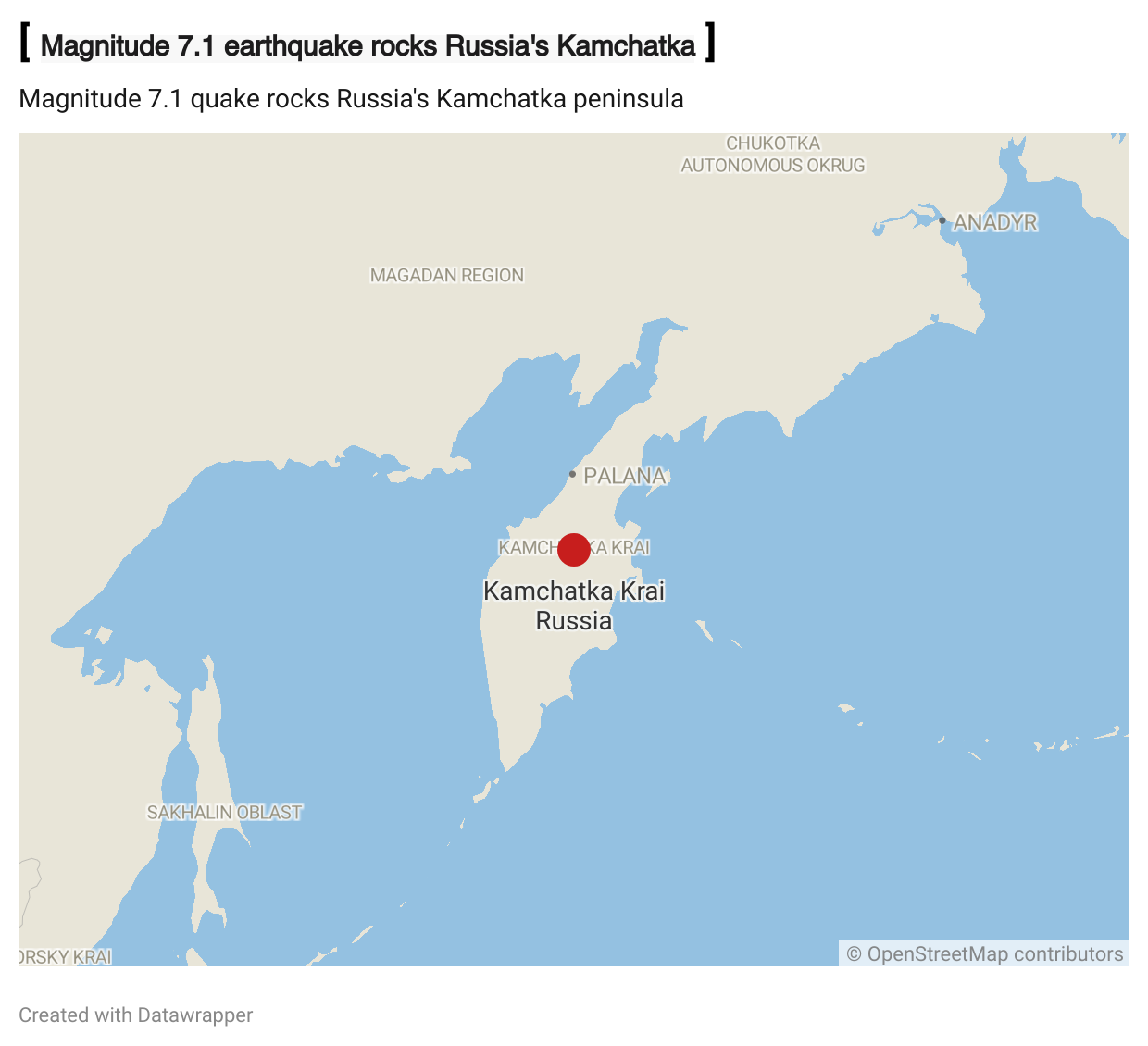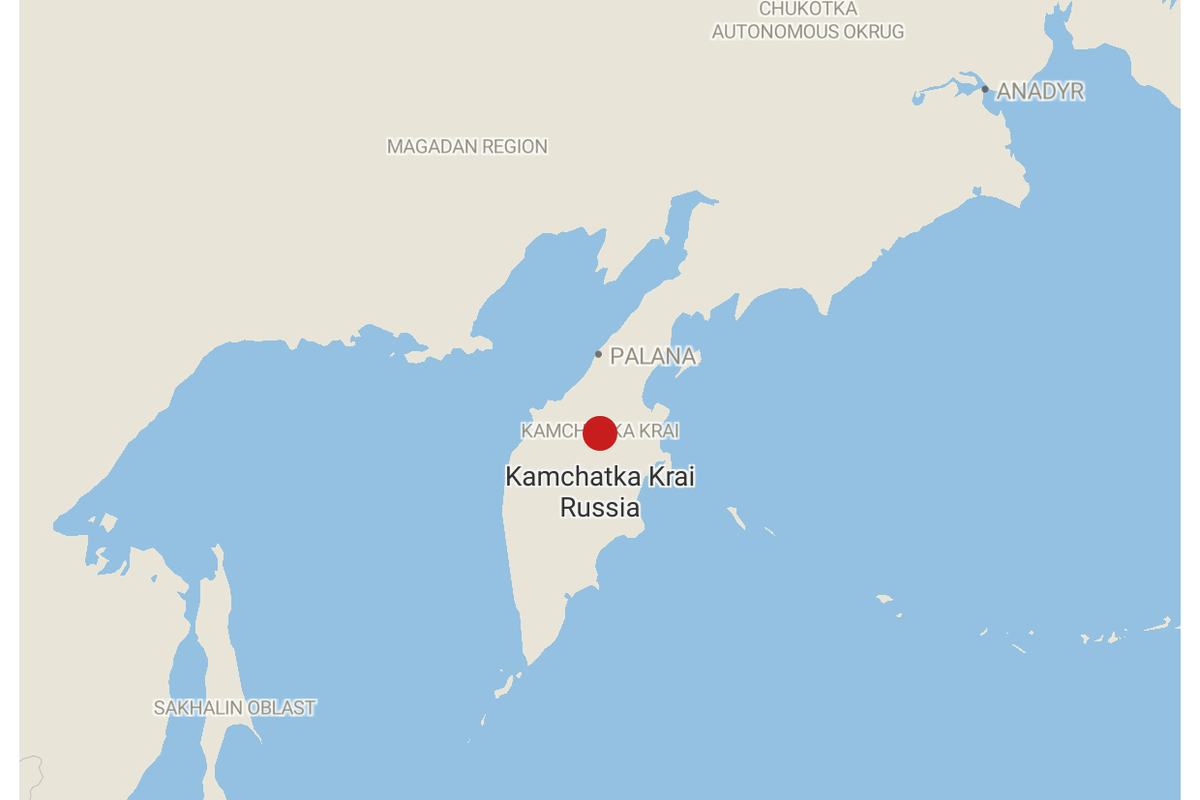A tsunami warning has been issued by the US after a magnitude 7.4 struck near the east coast of Russia’s Kamchatka peninsula on Saturday, according to the US Geological Survey.
The quake comes after a massive 8.8 magnitude earthquake, the sixth strongest ever recorded, hit the region in July.
The USGS reported that the latest quake’s epicentre was 111.7km (69.3 miles) east of Petropavlovsk-Kamchatsky and at a depth of about 39km (24 miles).
It is an aftershock of the M8.8 earthquake that struck on 29 July, and the largest one following the 8.8 “mainshock”, according to the American agency.
The M8.8 quake itself was preceded by several foreshocks that struck the region in previous months.
Earthquakes occur when the planet’s rocky tectonic plates, floating on magma, rub against each other, releasing massive amounts of energy.

As stress builds up due to tectonic plate movement, the built-up energy is released as seismic waves in what’s called a faulting mechanism.
The latest quake is a case of reverse faulting in which the upper block of rock, above the fault plane, moved up and over the lower block.
“The earthquake’s location and faulting mechanism are consistent with faulting along the subduction zone plate interface of the Kuril-Kamchatka arc,” the USGS said.
“At the earthquake’s location, the Pacific Plate is moving west-northwest relative to the North American Plate at a rate of approximately 80 millimetres per year,” the American agency said.
Earthquakes of this size, according to the USGS, typically involve rupture dimensions of about 70km (44 miles) in length and 35km (22 miles) in width.
“The aftershock resulted from shallow reverse faulting,” the agency said.
The US Tsunami warning system has issued a threat following the quake.
However, there has been no immediate reports of injuries or major damage, and the number of people living in and around the region is also “limited”, according to the USGS.
There has been no tsunami warning issued in Japan, to the southwest of the Kamchatka Peninsula, broadcaster NHK reported, citing the Japan Meteorological Agency.


